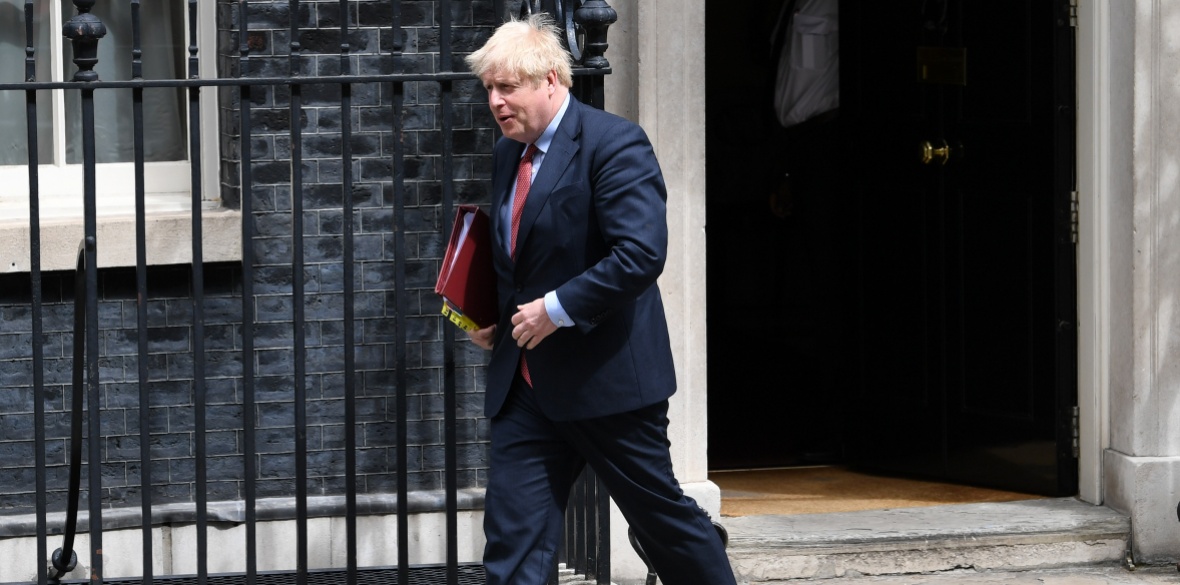This is the last article you can read this month
You can read more article this month
You can read more articles this month
Sorry your limit is up for this month
Reset on:
Please help support the Morning Star by subscribing here
BORIS JOHNSON went into a huddle with business bosses earlier this week to warn them that a second wave of Covid-19 infections was a risk this coming autumn.
Ever eager to spread a sunshine story, the Prime Minister speculated that the next wave would be less dangerous than the first, that his government was ultra-keen to avoid a second lockdown and that things would be back to normal by spring time.
Would these masters of the entrepreneurial universe be any the wiser about what to do after hearing this exhibition of the PM’s apparent ability to hold two contradictory ideas in his head without believing in either or being able to calculate the probable consequences of any course of action that might flow from them?
We are accustomed to the man’s tendency to make policy on the wing without feeling the slightest obligation to carry through into government. But a collection of business-folk who, we might speculate, would be prejudiced in favour of a big-business-friendly government such as the Tories present themselve to be are entitled to expect a clear lead from the man nominally in charge.
The question is, do the bosses of the many thousands of laid-off and furloughed office workers call them back to work next week?
There are clear economic pressures that see a full return to work as an overriding priority.
On the other hand, the British public, and particularly the British workforce, have displayed a remarkable inclination to apply the precautionary principle of safety first. Consequently there is powerful resistance to a premature return to work.
The existence of local hotspots of infection resulting in localised lockdowns in Leicester and now Oldham adds the suspicion that the danger of a new and more generalised outbreak cannot be excluded.
Into this alarming narrative is now introduced the conclusion of a Commons committee, which confirms what we have long suspected: that the drive to discharge thousands of hospital patients into care settings without first testing to see if they were Covid-19-free was a “reckless” and “appalling” policy error.
A comparison between the course taken by the virus in Britain and other countries is very revealing. Spain, whence travellers are now obliged to quarantine, experienced an alarmingly steep rise in the level of infection, took extreme measures and achieved a precipitous decline in the rate of infection.
South Korea imposed, from the very beginning, the most rigorous testing and isolation regime — and infections flatlined, with relatively low rates and a sustained pressure on the spread of the virus.
By comparison, the trajectory traced by Britain is revealing. Infections rose fast and, as a range of measures were deployed, it levelled out. But our country maintained a high rate of new infections and hospital admissions and deaths for a longer period than other comparable countries before the decline in the rate of infection started.
It is reasonable to assume that part of this was the inconsistent and contradictory advice that people were given, while the decision to move patients into care homes without testing was a powerful contributory factor to the high number of deaths in care settings, which kept the overall figure of deaths high for longer.
One consequence of the contradictory advice and uncertainty that has characterised the government’s approach from the beginning is that entirely unproven and speculative ideas are given free rein in an ideological climate poisoned by extreme libertarian ideas promoted by cultish outfits of uncertain provenance.












